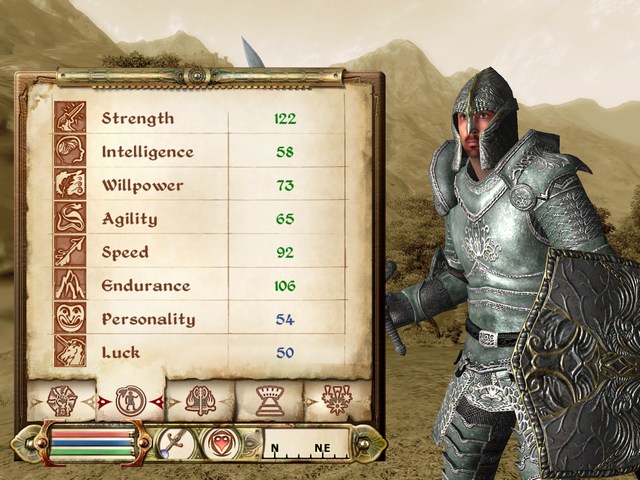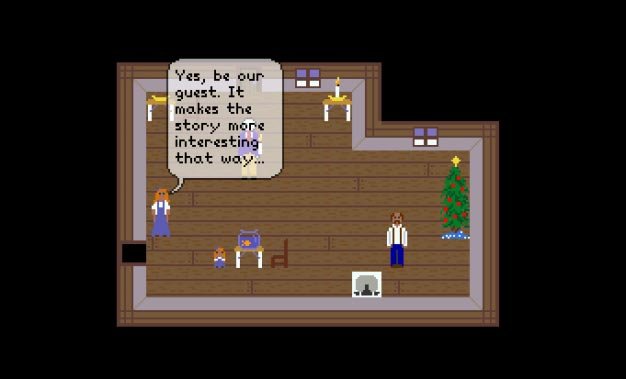This post has not been edited by the GamesBeat staff. Opinions by GamesBeat community writers do not necessarily reflect those of the staff.

You probably wouldn't watch a movie where each scene was shown in a random order (films like Memento notwithstanding). You wouldn't read a book if the chapters didn't make sense in context with each other. And unless you're listening for satanic messages, you wouldn't play a music track in any way but forward.
So why do we demand anything different from games?
In a postmortem published in the October issue of Game Developer magazine, Final Fantasy 13 team members Motomu Toriyama and Akihiko Maeda wrote that they had worried about how Western gamers would receive Final Fantasy 13 due to its extreme linearity.
It's a common complaint from those who profess to dislike Japanese RPGs. "You can only go where you're supposed to go," they say. "You're forced to advance the story, a story over which you have no control."
My response is simple: So what?

With some obvious exceptions (puzzlers like Tetris, sandboxes like Minecraft), every game has a story to tell. The style of narrative breaks down into two main forms: the kind where you create your own avatar, or the kind where you step into a predetermined role. Most Western RPGs, especially for PC, fit the first category. The majority of other games, including JRPGs and most first-person shooters, fit the second.
I've written recently about the narrative pitfalls of the first style. Making your own character sounds like a great way to control more of the story, and on the surface this is true — you choose your dialogue, reactions, and personality. Strengths and weaknesses, class and talents, and even physical appearance are all up to the player.
What effect does this really have on the story? Not much. Oh, you might get to decide which objectives to tackle first, or how much to level up. But to advance in the game — to truly "grow" as a character — you have to follow the main storyline or quest path. Otherwise, the game world is just standing still. The dire threat plaguing the kingdom sits twiddling its thumbs.
The trouble is, when designers have to account for each individual player's whims, it's impossible to craft a really cohesive story. Yes, a game might be "non-linear" enough for me to grind far past the necessary level, or complete any number of quests before moving on to the main plot. But this deliberately subverts the story's intended structure and pacing.
How can a writer anticipate the actions of every possible character and account for each player's choices? How can you make each objective and each growth option equally viable at any given time in any given character's progression, and still tell a story from start to finish? It simply doesn't work. It weakens the emotional impact of the narrative.

That leaves us with the second option: stepping into the shoes of a pre-written protagonist. This means that, while you may make choices as to how that character will play, he will always be imbued with the same personality, motivation, and lines of dialogue. No matter what materia you give Cloud or which characters you choose to fight alongside him, he's still going to be a spiky-headed loner with a checkered past.
The second style divorces gameplay choice and narrative choice — players have freedom over the former but the latter remain set.
In both styles, no matter how the player chooses to proceed strategically, the outcome is the same — the story cannot progress until the "linear" path is taken. But taking that path doesn't have to be a bad thing. Ceding that illusion of freedom and control allows for a more focused, complex story.
In a perfect world, of course, we wouldn't have to choose one or the other. I'd love to subvert the preset role of my character (as in, say, Final Fantasy 10's Sphere Grid, where you can develop party members contrary to their intended classes) and have the game's narrative take that into account. If my character was intended to be a fighter, and I decide to play him as a healer, that changes his motivation and personality. It would be fantastic for a game to anticipate that change and craft the story around my mechanical decisions, much as a good Dungeon Master might tailor a Dungeons & Dragons adventure around the party's behavior and background.

Unfortunately it just isn't possible, not with a mass-market title. Something like Sleep Is Death can make that sort of collaborative, flexible, dynamic storytelling work, because of its other design limitations and the personal nature of each game. In a mainstream RPG? Can't be done.
So I choose to give up my control. I choose to play the game as it was intended — even if that means going straight from Point A to Point B. I choose a linear story.
